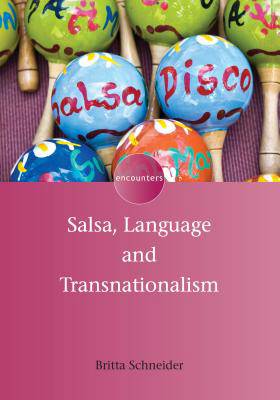
- Afhalen na 1 uur in een winkel met voorraad
- Gratis thuislevering in België vanaf € 30
- Ruim aanbod met 7 miljoen producten
- Afhalen na 1 uur in een winkel met voorraad
- Gratis thuislevering in België vanaf € 30
- Ruim aanbod met 7 miljoen producten
Omschrijving
What happens in globalised social contexts if people identify with a language that is not traditionally considered to be 'their' language? This unique contribution to the field of sociolinguistics scrutinises language ideologies of German and Australian Communities of Practice constituted by Salsa dance and asks what languages symbolise in transnational, non-ethnic cultures. Using ethnographic methodology and a deconstructive approach to language it examines these different Salsa communities and gives insight into the interaction of social discourses from local, national and transnational realms, examining differences, similarities and a simultaneous multiplicity of languages' symbolic functions. This book will be welcomed by postgraduates, professional sociolinguists and linguistic anthropologists as well as scholars of cultural anthropology, sociology and cultural studies who are interested in the development of modernist categories in transnational culture.
Specificaties
Betrokkenen
- Auteur(s):
- Uitgeverij:
Inhoud
- Aantal bladzijden:
- 160
- Taal:
- Engels
- Reeks:
- Reeksnummer:
- nr. 3
Eigenschappen
- Productcode (EAN):
- 9781783091898
- Verschijningsdatum:
- 29/05/2014
- Uitvoering:
- Hardcover
- Formaat:
- Genaaid
- Afmetingen:
- 150 mm x 211 mm
- Gewicht:
- 362 g

Alleen bij Standaard Boekhandel
Beoordelingen
We publiceren alleen reviews die voldoen aan de voorwaarden voor reviews. Bekijk onze voorwaarden voor reviews.











